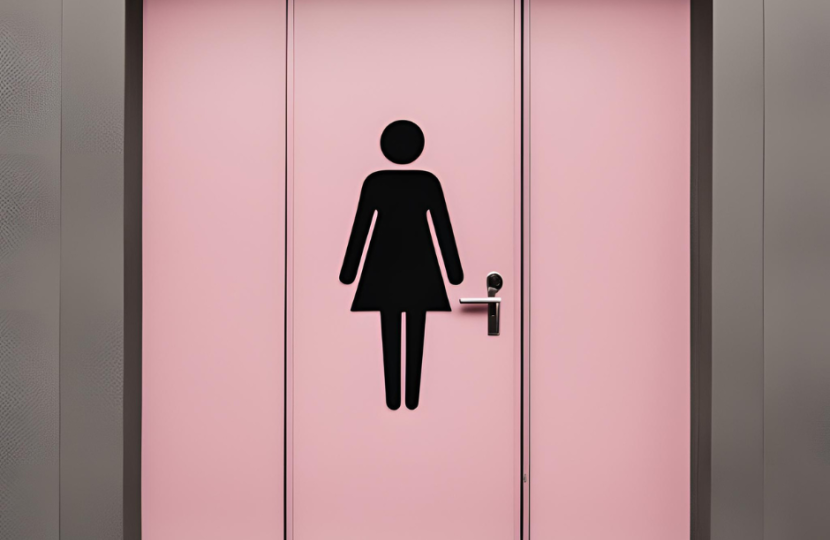
Last month, I received a letter from a woman that was so profoundly distressing, I felt compelled to share it publicly. She wrote about two incidents of being followed into a women’s toilet by men presenting as women. The first time, aged 16, she was raped. The second time, years later, she was able to lock herself in a cubicle as a man dressed in women’s clothing tried to break the door down. She is one of many women who write to me every week, asking that we do more to defend single-sex spaces. So we are going to act.
Whether it is rapists being housed in women’s prisons, or men playing in women’s sports where they have an unfair advantage, it is clear that public authorities and regulatory bodies are confused about what the law says and what to do – often for fear of being accused of transphobia.
The law is confused because times have changed and words in law are being re-interpreted to meanings quite different from what legislators intended. Clarification is required. Not just to protect the privacy and dignity of women and girls, but also to protect those people with gender dysphoria for whom the law was set up to protect. These transpeople were going about their lives in peace, until predators started exploiting loopholes in the law by calling themselves trans with no evidence beyond their self-identification.
Sex and gender, terms once used inter-changeably in the law now mean different things with significant implications. This is being exploited by all sorts of activist organisations, most notably Stonewall for their own agenda. That’s why today, we are pledging that if we form a government after the election, we will clarify that “sex” in the Equality Act, means biological sex.
Many will ask why hasn’t this been done already? Or claim it is just an announcement just for the election. Far from it. I first started work on this issue two years ago, as the SNP were bringing in their disastrous gender recognition bill. Most of the last eighteen months has been spent preparing the case, to stop its adverse effects across all of the UK, and then defending it from appeal afterwards. But the order we put in place is just a stop-gap. A permanent solution is required to stop devolved governments messing around in this space.
We are one United Kingdom and it is impracticable for gender recognition regimes to vary in different parts of the country. So, we will also legislate to establish that gender recognition is a reserved matter. On fundamental matters of personal identity there should be one approach throughout the United Kingdom.
Last year I wrote to the independent Equality and Human Rights Commission asking for their advice. They replied saying clarification in the law would be beneficial for service providers.
I went to the Prime Minister with a plan for fixing the issues in this space. Clear guidance for schools on how to deal with children questioning their gender, dealing with the erasure of women in healthcare with ridiculous phrases like “chest-feeding” or “birthing parent”, updating building regulations to stop the fad for "gender-neutral” toilets where women have to walk past men using urinals to get to private cubicles, something which both sexes find intrusive, removing mixed-sex wards, and so much more. The lack of clear legal definitions is the root of almost all these problems. Rishi Sunak agreed.
We have a plan and we’ve been seeing it through. Just last week, the Health Secretary announced the banning of puberty blockers following the Cass review, as the government fulfilled its intention to stop children making irreversible life-changing decisions.
Our plan is working, but it is at risk. Conservatives understand these basic principles, sadly the Labour Party does not. Nor do the SNP or Liberal Democrats.
There are numerous examples of Keir Starmer going round in circles on this issue. And many more of mostly Labour politicians smearing those with concerns as “transphobic” or “far-right“, dismissing the issue as mere “culture wars”. They then bizarrely claim that the government should stick to talking about the economy and the NHS, as if we should not be capable of solving multiple things at once.
This change in law is necessary and no other party will fix it, only the Conservatives.
The change will mean that a rape crisis centre can legally provide a space for female victims to share intimate and painful experiences, without worrying about being sued for not admitting biological men who are titillated by tales of sexual abuse, even if they have a gender recognition certificate.
It also allows us to make a women’s-only ward in a hospital a space for biological women, without those hospitals fearing legal action.
A future Conservative government will take bold action and introduce primary legislation to clarify that the protected characteristic of sex in the Equality Act means biological sex. Our legislation will mean that for the purposes of the Equality Act, the provision in the Gender Recognition Act recognising legal sex will be disapplied.
The work is ready to go but will be lost if Labour win on 4 July.




